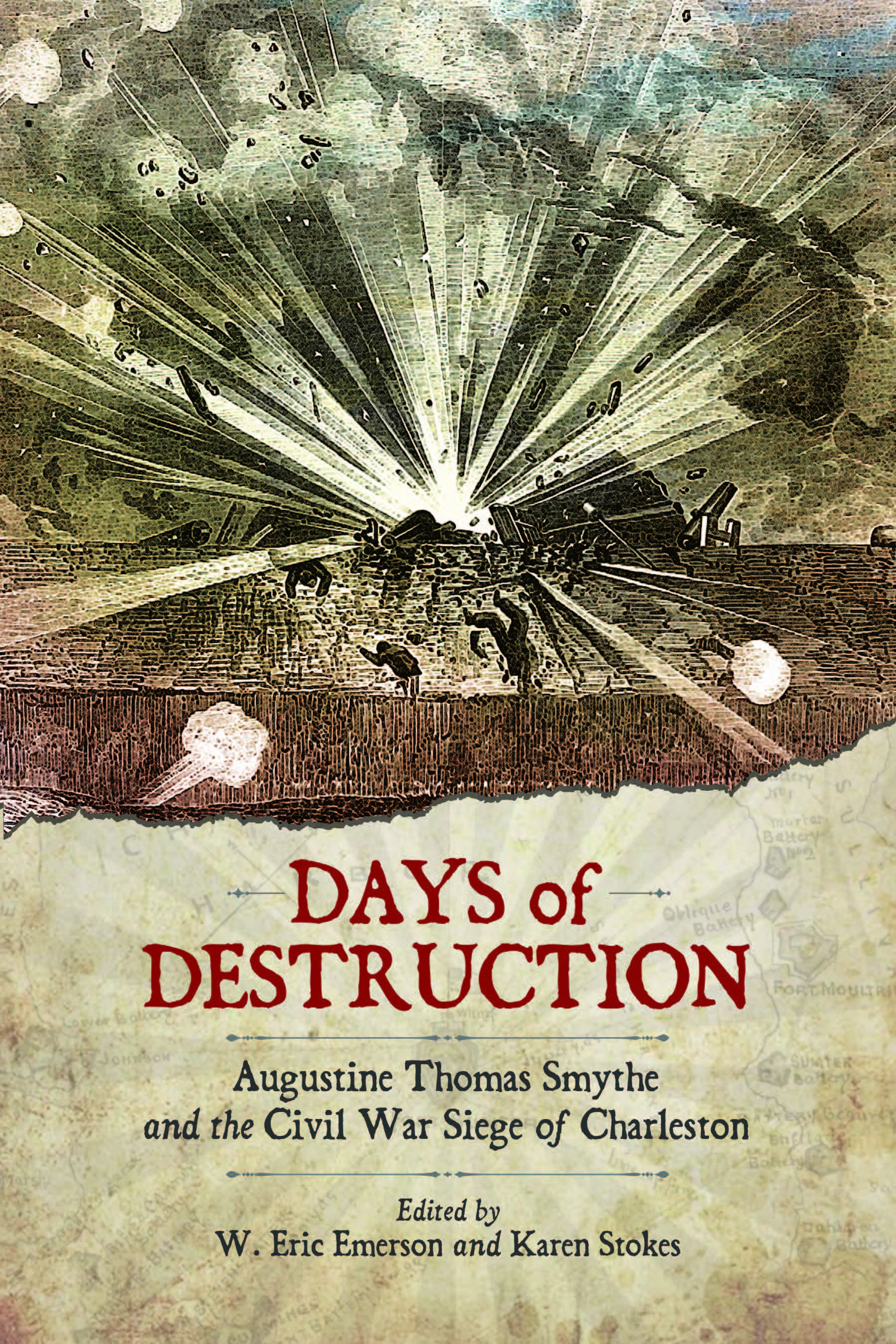Black History Month Sale: 40% off all books, plus FREE SHIPPING on all U.S. orders over $50 | Use code JBHM26

Size: 6 x 9
Pages: 200
Illustrations: 21 halftones
edited by W. Eric Emerson and Karen Stokes
The inclusion of this book in the Open Carolina collection is made possible by the generous funding of
"This unrelenting land and sea campaign was witnessed by Augustine Thomas Smythe, a native son serving in the Confederate Signal Corps. His letters contain many prescient observations on the devastating effects of siege warfare on the city, as well as describing his daily life and duties as a signal man."—Civil War Times
"The editors of Days of Destruction have scored a touchdown! I have read a ton of published collections of Civil War letters and this is one of the best ever. I am amazed that it is just now being brought to attention. Augustine T. Smythe was present during most of the 567-day bombardment and siege of Charleston, a major episode in world military history. As a signalman he moved frequently all over the area, on land and water, and experienced and witnessed more than any soldier and most officers. More importantly, he was a literate man who held nothing back, but wrote his folks vividly and fully about what was going on during this great event."—Clyde N. Wilson, Emeritus Distinguished Professor of History, University of South Carolina
"If you have never spent time studying the Charleston theater of the War because it seems a bit mundane, you err and are missing some of the most exciting, critical, and consequential actions of the War. This laudable new addition to the history of the unrelenting and ruthless campaign for the heartbeat of the Confederacy gives wonderful, first-hand details of the events as experienced by a soldier who was there though it all, with his especial information about the bombardment of the city and its innocent civilians. It is a must for those who want to know more as well as those who have read it all."—Herbert Bing Chambers, author of And Were the Glory of Their Times: Men Who Died for South Carolina in the War for Southern Independence
"a well-edited compilation of wartime correspondence that gives insight into a military and a city caught in a cataclysmic struggle for survival. It belongs on the book shelves of all Civil War historians."—Journal of Southern History
"A valuable read for anyone interested operations around Charleston and the Home Front, and for its brief look at the very neglected Confederate Signal Corps."—New York Military Affairs Symposium Review
"Emerson and Stokes' Days of Destruction puts a human face on the devastation wrought by Southern fire-eaters."—Civil War News
Copyright 2026
Website By Morweb.org